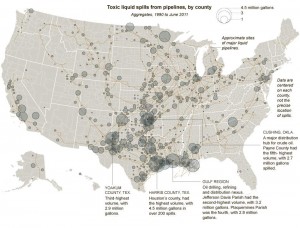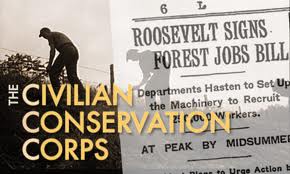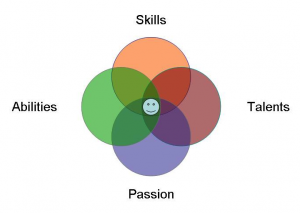Thanks to Malcolm’s Radio Show for inviting me to talk about the civil disobedience movement growing across the nation. More than 76 thousand people have signed the NoKXL Pledge of Resistance opposing the Keystone XL Pipeline’s extension to Texas. They pledge to, if necessary, “join others in my community, and engage in acts of dignified, peaceful civil disobedience that could result in my arrest in order to send the message to President Obama and his administration that they must reject the Keystone XL pipeline.” Consider signing up for my action in Monterey!
 Why would so many (white liberals) be willing to get arrested over a pipeline? (Note: I completely understand why minorities often don’t willingly involving themselves in our racist ‘justice’ system.) But this isn’t just eco-chic guerilla warfare, it’s a growing collective consciousness that we are standing on the wrong side of history. If you believe the Earth should be preserved for future generations, we’ve strayed far from “leave it better than you found it” towards “race to the bottom”.
Why would so many (white liberals) be willing to get arrested over a pipeline? (Note: I completely understand why minorities often don’t willingly involving themselves in our racist ‘justice’ system.) But this isn’t just eco-chic guerilla warfare, it’s a growing collective consciousness that we are standing on the wrong side of history. If you believe the Earth should be preserved for future generations, we’ve strayed far from “leave it better than you found it” towards “race to the bottom”.
The Keystone XL Pipeline would move 830,000 barrels of oil every day over two-thousand miles from Canada to Texas. The tar sands are a heavy sludge compared to conventional oil, so chemical additives make it easier to move through the pipeline. Unfortunately when there’s a spill like in Mayflower Arkansas, they can’t stop the spill easily. It’s dirtier and more difficult to process, and destroys the Canadian tundra in the extraction.
 We’re also asking for extinction if we tap the tar sands. According to Bill McKibben’s Do the Math tour, based on his article Global Warming’s Terrifying New Math, there’s five times as much carbon in proven oil reserves (read: part of the balance sheet and stock price of some oil company) than we can afford to burn and remain below 2ºC (read: the uppermost limit of adaptable climate change for humanity). So if we don’t leave the tar sands underground, it spells “game over for the planet” according to NASA scientist James Hansen.
We’re also asking for extinction if we tap the tar sands. According to Bill McKibben’s Do the Math tour, based on his article Global Warming’s Terrifying New Math, there’s five times as much carbon in proven oil reserves (read: part of the balance sheet and stock price of some oil company) than we can afford to burn and remain below 2ºC (read: the uppermost limit of adaptable climate change for humanity). So if we don’t leave the tar sands underground, it spells “game over for the planet” according to NASA scientist James Hansen.
We’ve passed 400 parts per million of CO2 in the atmosphere, and continue to contribute multiple ppm per year to our greenhouse gas load. Never mind how much China, India and South Africa will emit in the future, America has enough historic responsibility to go around, and enough money and know-how to lead the charge. More importantly, why would a developing nation curb its growth as we continue to commit to a toxic energy infrastructure?
We need to stop investing in last century’s problems, and start researching the next century’s solutions if we’re going to build a better planet. There have been multiple natural disasters this summer resulting in spills, including dozens of leaks following Colorado’s flooding, typhoons worsening Fukushima’s radiation leak, and the explosions in the Gulf of Mexico on deep sea natural gas rigs (nope, not BP’s Deepwater Horizon, there’s been many more spills and explosions since then!).
 There is no such thing as spill-free, leak-free, explosion-free. There’s just a promise that eventually, there will be a disaster. Which the public will clean up while the private sector profits. Check out the map, and think about whether you’d want to live anywhere near that route.
There is no such thing as spill-free, leak-free, explosion-free. There’s just a promise that eventually, there will be a disaster. Which the public will clean up while the private sector profits. Check out the map, and think about whether you’d want to live anywhere near that route.
So we’re considering building a pipeline that’s 10 times as big as the one that destroyed Mayflower, Arkansas, and we’re going to move this heavy crude laced with chemical additives through it across America, including over the Ogallala Aquifer (which waters a large amount of our nation’s grain). How many spills would it take to contaminate this irreplaceable water source, that creates billions in jobs and revenue every year? Is that still economic progress?
The jobs and economics arguments around the pipeline seem the most devious and disingenuous. Doesn’t building anything create jobs? What about a school, or a hospital, or repairing our failing infrastructure? Investing in our systems seems like a no-brainer (that only the no-brainers among our representatives could oppose).
 Why not pursue something like Civilian Conservation Corps? Update our electrical grids, bridges and transportation systems for the first time in 50 years. Try to hold on to the greatness of this nation’s past, maybe make a place for the U.S. in the future? If we decide to get really crazy, maybe even upgrade the New Orleans levees, put in some flood gates for seabaoard cities? Just in case you’re interested in traveling to New York, D.C. or San Francisco in a few decades. We need to start preparing for the natural disasters that were made worse by the carbon emitted in the last century, not continue down the same tired road!
Why not pursue something like Civilian Conservation Corps? Update our electrical grids, bridges and transportation systems for the first time in 50 years. Try to hold on to the greatness of this nation’s past, maybe make a place for the U.S. in the future? If we decide to get really crazy, maybe even upgrade the New Orleans levees, put in some flood gates for seabaoard cities? Just in case you’re interested in traveling to New York, D.C. or San Francisco in a few decades. We need to start preparing for the natural disasters that were made worse by the carbon emitted in the last century, not continue down the same tired road!
I think what’s most important is being on the right side of history. As the great William Wallace said in Braveheart, “dying in your bed many years from now, listening to stories of tsunamis, hurricanes, floods, fires, and catastrophic oil spills, would you be willing to trade all the days from this day to that for one chance, just one chance, to come back here and fight for the next generation!” Or something like that.
If you’re interested in getting involved in a local action, visit the #NoKXL website, Sign the Pledge of Resistance, and join an action near you.





